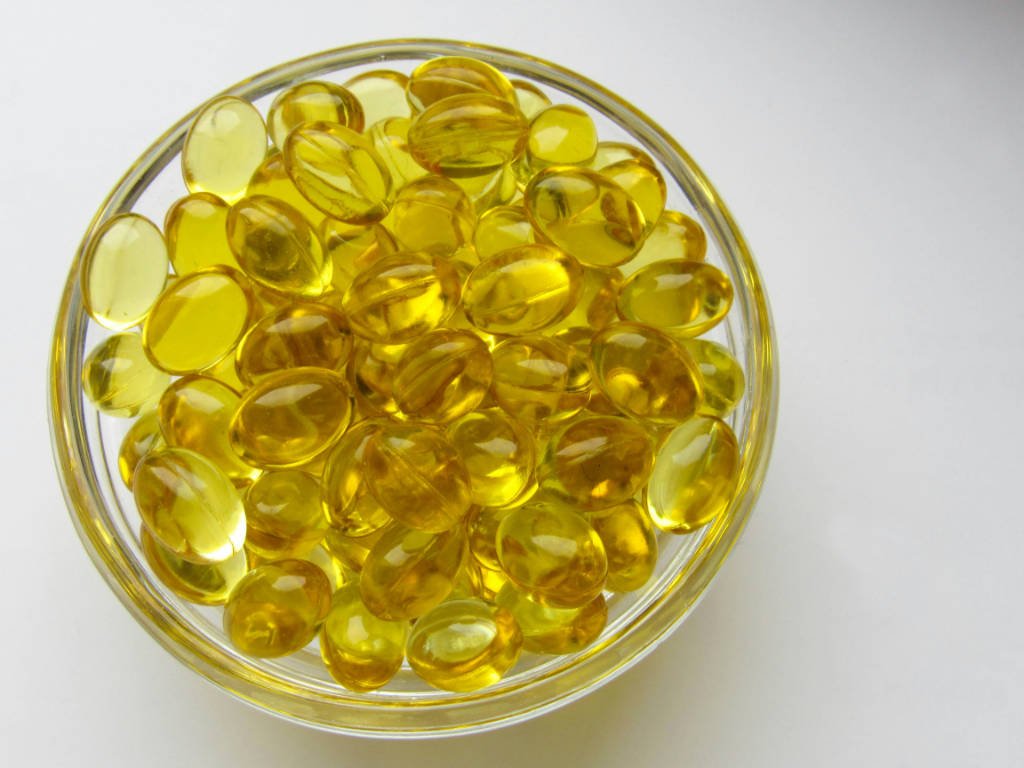Have you ever wondered why your grandmother always insisted on eating fish every Friday? Turns out, she might have been onto something bigger than just tradition. The benefits of omega-3 fatty acids have been making waves in the health community for decades, and for good reason. These tiny but mighty nutrients pack a serious punch when it comes to keeping our bodies running smoothly.
Think of omega-3s as your body’s maintenance crew – they’re constantly working behind the scenes to keep inflammation in check, support your brain function, and protect your heart from the daily stresses of modern life. But here’s the thing: most of us aren’t getting nearly enough of these essential fats in our diets.
What Are Omega-3 Fatty Acids?
Omega-3 fatty acids are essential polyunsaturated fats that your body desperately needs but can’t produce on its own. It’s like having a car that requires premium fuel but can’t manufacture it internally – you’ve got to get it from external sources.
There are three main types of omega-3s that you should know about:
EPA (Eicosapentaenoic Acid) primarily comes from fatty fish and plays a crucial role in reducing inflammation throughout your body. Think of EPA as your internal firefighter, constantly putting out inflammatory flares before they become bigger problems.
DHA (Docosahexaenoic Acid) is the brain’s best friend. This omega-3 makes up a significant portion of your brain tissue and is essential for cognitive function, memory, and mood regulation. Without adequate DHA, your brain’s like a smartphone trying to run on 10% battery.
ALA (Alpha-Linolenic Acid) comes from plant sources like flaxseeds, chia seeds, and walnuts. While your body can convert small amounts of ALA into EPA and DHA, the conversion rate is pretty inefficient. It’s better than nothing, but it’s not your most reliable source.
Studies notes that understanding these different types helps explain why fish-based omega-3s are often considered more bioavailable than plant-based sources.
How Do Omega-3s Work in Your Body?
Here’s where things get fascinating. Omega-3 fatty acids don’t just float around aimlessly in your bloodstream – they actually become part of your cell membranes, influencing how your cells communicate with each other.
When omega-3s integrate into your cell membranes, they make them more flexible and responsive. It’s like upgrading from a rigid plastic container to a high-tech smart material that can adapt and respond to different situations. This flexibility affects everything from how efficiently your neurons fire to how well your heart muscle contracts.
The anti-inflammatory effects of omega-3s work through several pathways. They help produce specialized molecules called resolvins and protectins, which actively help resolve inflammation rather than just suppress it. Traditional anti-inflammatory medications often work by blocking inflammatory pathways, but omega-3s take a more sophisticated approach – they help your body naturally wind down the inflammatory response when it’s no longer needed.
Heart Health Benefits of Omega-3 Fatty Acids
This is where omega-3s really shine, and the scientific evidence is nothing short of impressive.
Cardiovascular Protection Mechanisms
Triglyceride Reduction stands out as one of omega-3’s most well-documented benefits. These fats can lower your triglyceride levels, which is particularly impressive for people with elevated levels. High triglycerides are like having thick, sticky blood that makes your heart work harder than it should.
HDL Cholesterol Enhancement is another key benefit. Omega-3s help increase your “good cholesterol” levels, which acts like a cleanup crew for your arteries, removing harmful cholesterol deposits and transporting them to your liver for disposal.
Blood Clotting Regulation is where things get really interesting. Omega-3s help reduce platelet aggregation – essentially making your blood less sticky. This doesn’t mean you’ll start bleeding uncontrollably; it means your blood flows more smoothly, reducing the risk of dangerous clots forming in your arteries.

Clinical Evidence That Changes Everything
The REDUCE-IT trial was a game-changer in omega-3 research. This massive study followed over 8,000 high-risk patients with elevated triglycerides and found that purified EPA supplementation led to:
- 25% reduction in major cardiovascular events
- Significant decrease in heart attacks and strokes
- Reduction in the need for heart stenting procedures
- Lower mortality rates across the board
What makes these results even more compelling is that participants were already on optimal medical therapy – statins, blood pressure medications, the works. Adding omega-3s provided additional protection on top of conventional treatments.
Who Benefits Most?
Research from the National Heart, Lung, and Blood Institute suggests that benefits aren’t universal, but certain groups see dramatic improvements:
Fish-avoiders who don’t regularly consume fatty fish showed the most significant benefits from supplementation. If you’re someone who grimaces at the thought of salmon or sardines, omega-3 supplements might be particularly valuable for you.
High-risk individuals with multiple cardiovascular risk factors experienced a 44% reduction in heart attacks. We’re talking about people who smoke, have high blood pressure, or have family histories of heart disease.
African American participants in studies showed an impressive 77% reduction in heart attacks, suggesting that genetic factors might influence how effectively different populations utilize omega-3s.
The Omega-3 Index
Think of the Omega-3 Index like your cholesterol numbers – it’s a measurable biomarker that can predict your risk level. This index measures EPA and DHA levels in your red blood cells as a percentage of total fatty acids.
An index above 8% is associated with a 90% lower risk of sudden cardiac death compared to an index below 4%. That’s a massive difference that puts the Omega-3 Index in the same category as LDL cholesterol as a predictor of heart disease risk.
Brain Health and Cognitive Benefits
Your brain is essentially a fat-heavy organ – about 60% of it is made up of fats, and DHA omega-3s comprise a significant portion of that. When you don’t get enough omega-3s, it’s like trying to build a house with substandard materials.
Memory and Learning Enhancement
Neuroplasticity – your brain’s ability to form new connections and adapt – depends heavily on adequate omega-3 levels. DHA helps maintain the fluidity of brain cell membranes, making it easier for neurons to communicate with each other.
Studies have shown that people with higher omega-3 levels perform better on memory tests, have faster processing speeds, and maintain cognitive function better as they age. It’s not just about preventing decline – it’s about optimizing your brain’s performance right now.
Mood and Mental Health
There’s a strong connection between omega-3 levels and mental health that goes beyond just “feeling good.” Countries with higher fish consumption typically have lower rates of depression and anxiety disorders.
Serotonin production is influenced by omega-3 levels. DHA helps maintain the integrity of serotonin receptors in your brain, making them more responsive to this crucial mood-regulating neurotransmitter.
Stress response also improves with adequate omega-3 intake. These fats help regulate cortisol production and support your body’s ability to bounce back from stressful situations.
For those interested in natural approaches to mental wellness, our guide on managing anxiety naturally provides additional strategies that complement omega-3 supplementation.
Neuroprotection
As we age, our brains naturally shrink and lose some functionality. However, research suggests that maintaining adequate omega-3 levels can slow this process significantly.
Alzheimer’s prevention studies show that people with higher DHA levels have larger brain volumes and better cognitive performance in their later years. While we can’t completely prevent age-related cognitive decline, omega-3s appear to be one of our best defenses.
Anti-Inflammatory Properties
Chronic inflammation is like having a low-grade fever that never quite goes away – it’s exhausting for your body and contributes to virtually every chronic disease process.
How Inflammation Works
When your body encounters a threat – whether it’s an infection, injury, or stress – it triggers an inflammatory response. This is normally a good thing; inflammation helps fight off invaders and repair damage. The problem arises when this response doesn’t turn off properly, creating chronic, low-level inflammation that damages healthy tissue.
Omega-3s as Natural Anti-Inflammatories

Unlike pharmaceutical anti-inflammatories that work by blocking inflammatory pathways, omega-3s take a more elegant approach. They help your body produce specialized molecules called specialized pro-resolving mediators (SPMs) that actively help resolve inflammation.
Resolvins are one type of SPM that omega-3s help produce. These molecules don’t just stop inflammation – they actively help clean up inflammatory debris and restore tissue to its normal state.
Protectins are another class of SPMs that help protect tissues from inflammatory damage while promoting healing and repair.
This difference in approach explains why people who take omega-3s often report feeling better overall, not just in terms of specific inflammatory conditions.
Conditions Linked to Inflammation
Arthritis and Joint Health – Many people report reduced joint pain and stiffness after increasing their omega-3 intake. The anti-inflammatory effects can help reduce the swelling and pain associated with both rheumatoid arthritis and osteoarthritis.
Skin Conditions – Eczema, psoriasis, and other inflammatory skin conditions often improve with omega-3 supplementation. The fats help maintain skin barrier function while reducing inflammatory responses.
Digestive Health – Inflammatory bowel conditions like Crohn’s disease and ulcerative colitis may benefit from omega-3s’ anti-inflammatory effects. Our comprehensive guide on gut health warning signs can help you identify if inflammation might be affecting your digestive system.
Eye Health Benefits
Your eyes are exposed to a constant barrage of light, oxygen, and environmental stressors that can lead to oxidative damage over time. DHA makes up a significant portion of your retinal tissue, making omega-3s crucial for maintaining healthy vision.
Age-Related Macular Degeneration (AMD)
AMD is the leading cause of vision loss in people over 50, but research suggests that adequate omega-3 intake can significantly reduce your risk. DHA helps maintain the structural integrity of photoreceptor cells in your retina – the cells responsible for converting light into the electrical signals your brain interprets as vision.
Dry Eye Syndrome
If you spend long hours staring at screens (and who doesn’t these days?), you might be familiar with dry, irritated eyes. Omega-3s help improve the quality of your tear film by supporting healthy oil gland function in your eyelids.
The anti-inflammatory effects also help reduce the irritation and redness associated with chronic dry eye conditions.
How Much Omega-3 Do You Need?
This is where things get a bit tricky because recommendations vary depending on your health status, age, and specific goals. The general recommendations from various health organizations provide a good starting point, but individual needs can vary significantly.
General Recommendations
Healthy adults should aim for at least 250-500mg of combined EPA and DHA daily. This is roughly equivalent to eating fatty fish 2-3 times per week.
People with cardiovascular disease or elevated triglycerides often need higher doses – typically 0.5 to 1.8 grams of combined EPA and DHA daily under medical supervision.
Pregnant and breastfeeding women need at least 200mg of DHA daily for optimal fetal brain development, though many experts recommend higher amounts.
Signs You Might Need More
Dry, flaky skin that doesn’t improve with moisturizers could indicate omega-3 deficiency. Your skin cells need these fats to maintain proper barrier function.
Brain fog or difficulty concentrating might improve with increased omega-3 intake, especially if you’re not getting much from your diet.
Joint stiffness or achiness that isn’t related to specific injuries could be related to inflammation that omega-3s might help address.
Mood changes or increased anxiety might also improve with omega-3 supplementation, particularly if you’re dealing with chronic stress.
Best Sources of Omega-3 Fatty Acids
Not all omega-3 sources are created equal, and understanding the differences can help you make better choices for your health goals.
Fatty Fish: The Gold Standard

Salmon tops the list. Wild-caught salmon typically has higher omega-3 levels than farm-raised, but both are excellent choices.
Mackerel is an often-overlooked powerhouse. It’s also typically less expensive than salmon and has a rich, flavorful taste that pairs well with various preparations.
Sardines might not be everyone’s favorite, but they are one of the most sustainable fish choices available. Plus, they’re low on the food chain, meaning less mercury accumulation.
Anchovies are similar to sardines in their omega-3 content and sustainability. They’re also incredibly versatile – you can add them to pasta dishes, pizza, or salads for an umami boost along with your omega-3s.
Plant-Based Sources
While plant sources contain ALA rather than EPA and DHA, they’re still valuable, especially if you follow a vegetarian or vegan diet.
Flaxseeds contain about 1.6-2.3 grams of ALA per tablespoon. Grinding them fresh helps improve absorption, as whole flaxseeds often pass through your digestive system intact.
Chia seeds provide about 1.3 grams of ALA per tablespoon and have the added benefit of being rich in fiber and protein.
Walnuts are the only tree nut with significant omega-3 content – about 2.5 grams of ALA per quarter cup.
Hemp seeds contain about 2.6 gram of ALA per 3 tablespoons and have a mild, nutty flavor that works well in smoothies or sprinkled on salads.
Algae-Based Supplements
For those who want EPA and DHA without fish, algae-based supplements are an excellent option. Since fish get their omega-3s from eating algae anyway, these supplements cut out the middleman.
Algae-based supplements are particularly valuable for vegans and people with fish allergies. They typically provide both EPA and DHA in ratios similar to fish oil supplements.
Choosing the Right Omega-3 Supplement
Walking down the supplement aisle can feel overwhelming with all the different omega-3 options available. Understanding what to look for can help you make an informed choice that fits your needs and budget.
Forms of Omega-3 Supplements
Triglyceride form is closest to how omega-3s naturally occur in fish. These supplements tend to have better absorption rates but can be more expensive.
Ethyl ester form is more common and typically less expensive. While absorption isn’t quite as good as triglyceride form, it’s still effective for most people.
Phospholipid form, found in krill oil, may have enhanced absorption properties, though it’s typically more expensive than fish oil.
What to Look For
Third-party testing is crucial for ensuring purity and potency. Look for supplements that have been tested by independent organizations like IFOS (International Fish Oil Standards) or USP (United States Pharmacopeia).
Concentration levels can vary dramatically between supplements. Some provide 300mg of omega-3s per capsule, while others provide 1,000mg or more. Check the label carefully to understand how many capsules you’ll need to reach your target dose.
Freshness indicators include manufacturing dates and expiration dates. Omega-3s can go rancid, so fresher is always better.
Sustainability certifications like MSC (Marine Stewardship Council) indicate that the fish were sourced from well-managed fisheries.
If you’re exploring other supplement options for overall health, our guide on powerful natural supplements that work provides additional insights into building an effective supplement routine.
Potential Side Effects and Considerations
While omega-3s are generally safe for most people, there are some considerations to keep in mind, especially if you’re taking medications or have specific health conditions.
Common Side Effects
Fishy aftertaste or burps are the most common complaints. Taking supplements with meals, freezing them, or switching to enteric-coated capsules can help minimize this issue.
Digestive upset including nausea or diarrhea can occur, especially when starting with high doses. Beginning with smaller amounts and gradually increasing can help your body adjust.
Blood thinning effects are generally mild but can be significant if you’re already taking blood-thinning medications.
Drug Interactions
If you’re taking blood thinners, consult with your healthcare provider before adding omega-3 supplements. The combination can increase bleeding risk, though this is typically only a concern with very high doses.
Blood pressure medications might be more effective when combined with omega-3s, potentially requiring dose adjustments under medical supervision.
Quality Concerns
Unfortunately, not all omega-3 supplements are created equal. Some cheaper options may contain:
- Heavy metals like mercury, lead, or cadmium
- PCBs (polychlorinated biphenyls) and other environmental contaminants
- Oxidized oils that have gone rancid and may actually be harmful
This is why choosing supplements from reputable manufacturers who conduct third-party testing is so important.
Special Populations and Omega-3 Needs
Different life stages and health conditions can significantly affect your omega-3 requirements, making it important to understand how your individual circumstances might influence your needs.
Pregnancy and Breastfeeding
During pregnancy, your omega-3 needs increase dramatically, particularly for DHA. Your developing baby’s brain and eyes are rapidly forming, and adequate DHA is crucial for optimal development.
Maternal benefits include reduced risk of postpartum depression and potentially longer gestation periods (which can reduce the risk of premature birth).
Fetal development depends heavily on maternal DHA intake. Babies born to mothers with higher omega-3 levels tend to have better cognitive development and fewer behavioral issues later in childhood.
Breastfeeding mothers continue to have elevated omega-3 needs since they’re passing these crucial fats to their babies through breast milk.
For more comprehensive information about nutrition during different life stages, our women’s wellness and beauty guide covers additional nutritional considerations.
Children and Adolescents
Kids’ brains are still developing well into their twenties, making omega-3s particularly important during these growth years.
ADHD and behavioral issues have been linked to lower omega-3 levels in some studies. While omega-3 supplementation isn’t a cure for ADHD, it may help improve attention and reduce hyperactivity in some children.
Academic performance might benefit from adequate omega-3 intake, with some studies showing improvements in reading and memory skills.
Older Adults
As we age, our bodies become less efficient at utilizing omega-3s, potentially increasing our needs.
Cognitive decline appears to be slower in people with higher omega-3 levels, making these fats particularly important for healthy aging.
Age-related macular degeneration risk is significantly reduced in people with adequate omega-3 intake.
Cardiovascular benefits become even more important as age-related changes in blood vessels and heart function occur.
Maximizing Absorption and Benefits
Getting omega-3s into your system is only half the battle – you want to make sure your body can actually use them effectively.
Timing and Food Pairing
Taking omega-3s with fat-containing meals improves absorption significantly. The presence of other fats stimulates bile production, which helps emulsify and absorb omega-3 fatty acids.
Morning vs. evening doesn’t seem to matter much for most people, but consistency does. Taking your supplement at the same time each day helps ensure you don’t forget and maintains steady levels in your system.
Supporting Nutrients
Vitamin E acts as an antioxidant that helps protect omega-3 fatty acids from oxidation in your body. Many high-quality omega-3 supplements include vitamin E for this reason.
Vitamin D works synergistically with omega-3s for bone health, immune function, and mood regulation. Our detailed guide to vitamin D explains how these nutrients work together.
Magnesium supports the enzymatic processes that convert ALA to EPA and DHA, making it particularly important for people relying primarily on plant-based omega-3 sources.
Lifestyle Factors
Exercise appears to enhance omega-3 utilization, particularly for cardiovascular and mood benefits. The combination of regular physical activity and adequate omega-3 intake provides synergistic benefits that exceed either intervention alone.
Stress management is important because chronic stress can increase omega-3 requirements. High cortisol levels appear to increase the turnover of omega-3 fatty acids in cell membranes.
Omega-3s and Athletic Performance
If you’re active or involved in regular exercise, omega-3s can provide specific benefits that go beyond general health maintenance.

Exercise Recovery
Muscle soreness and inflammation following intense exercise can be reduced with adequate omega-3 intake. The anti-inflammatory effects help your muscles recover more quickly between training sessions.
Joint health is particularly important for athletes and active individuals. Omega-3s help maintain healthy joint function and may reduce exercise-related joint stress.
For those serious about fitness, our comprehensive guide on muscle recovery supplements provides additional strategies for optimizing recovery.
Endurance and Performance
Some studies suggest that omega-3 supplementation can improve oxygen efficiency during exercise, potentially enhancing endurance performance. The mechanism appears to be related to improved red blood cell flexibility, which allows better oxygen delivery to working muscles.
Heart rate variability – a measure of cardiovascular fitness and stress resilience – appears to improve with omega-3 supplementation, particularly in trained athletes.
The Future of Omega-3 Research
The field of omega-3 research continues to evolve, with new applications and understanding emerging regularly.
Personalized Nutrition
Genetic testing is beginning to reveal why some people respond better to omega-3 supplementation than others. Variations in genes involved in omega-3 metabolism can significantly affect individual needs and responses.
Omega-3 Index testing is becoming more widely available, allowing people to measure their actual omega-3 levels rather than guessing about their needs.
Emerging Applications
Cancer prevention research is showing promising results, particularly for colorectal and breast cancers. While more research is needed, the anti-inflammatory properties of omega-3s appear to create an environment less favorable for cancer development.
Autoimmune conditions like rheumatoid arthritis, lupus, and multiple sclerosis are being studied for potential omega-3 benefits. The immune-modulating effects show promise for reducing disease severity and medication requirements.
Frequently Asked Questions
Can I get enough omega-3s from plant sources alone?
While plant sources like flaxseeds and walnuts provide ALA, the conversion to EPA and DHA is limited (5-10%). Vegans and vegetarians should consider algae-based supplements to ensure adequate EPA and DHA intake, especially for brain and heart health benefits.
How long does it take to see benefits from omega-3 supplementation?
Some benefits like reduced triglycerides can occur within weeks, while others like improved mood or cognitive function may take 2-3 months. The omega-3 index – which reflects long-term status – typically takes 3-4 months to reach steady state with consistent supplementation.
Do omega-3 supplements interfere with other medications?
Omega-3s can enhance the effects of blood-thinning medications and may interact with blood pressure medications. They’re generally safe with most other medications, but it’s always best to discuss supplementation with your healthcare provider if you’re taking prescription drugs.
Should children take omega-3 supplements?
Children can benefit from omega-3s, but dosing should be appropriate for their size and age. Fish consumption is typically the best approach for kids, but supplements formulated for children are available. Consult with your pediatrician before starting any supplements.
Are expensive omega-3 supplements worth the extra cost?
Price doesn’t always indicate quality, but cheaper supplements may have issues with purity, potency, or freshness. Look for third-party testing certifications rather than focusing solely on price. Sometimes paying more for a concentrated, well-tested product is more economical per effective dose.
The benefits of omega-3 fatty acids extend far beyond what most people realize. From protecting your heart and supporting brain function to reducing inflammation and potentially slowing aging processes, these essential fats are truly foundational to optimal health. Whether you choose to increase your fatty fish consumption, add plant-based sources to your diet, or incorporate high-quality supplements, making omega-3s a priority in your health routine is one of the best investments you can make in your long-term wellbeing.
Remember that consistency matters more than perfection. You don’t need to overhaul your entire diet overnight, but gradually increasing your omega-3 intake through sustainable changes will pay dividends for years to come. As with any significant dietary or supplement changes, consulting with a healthcare provider can help ensure you’re making choices that align with your individual health needs and goals.







